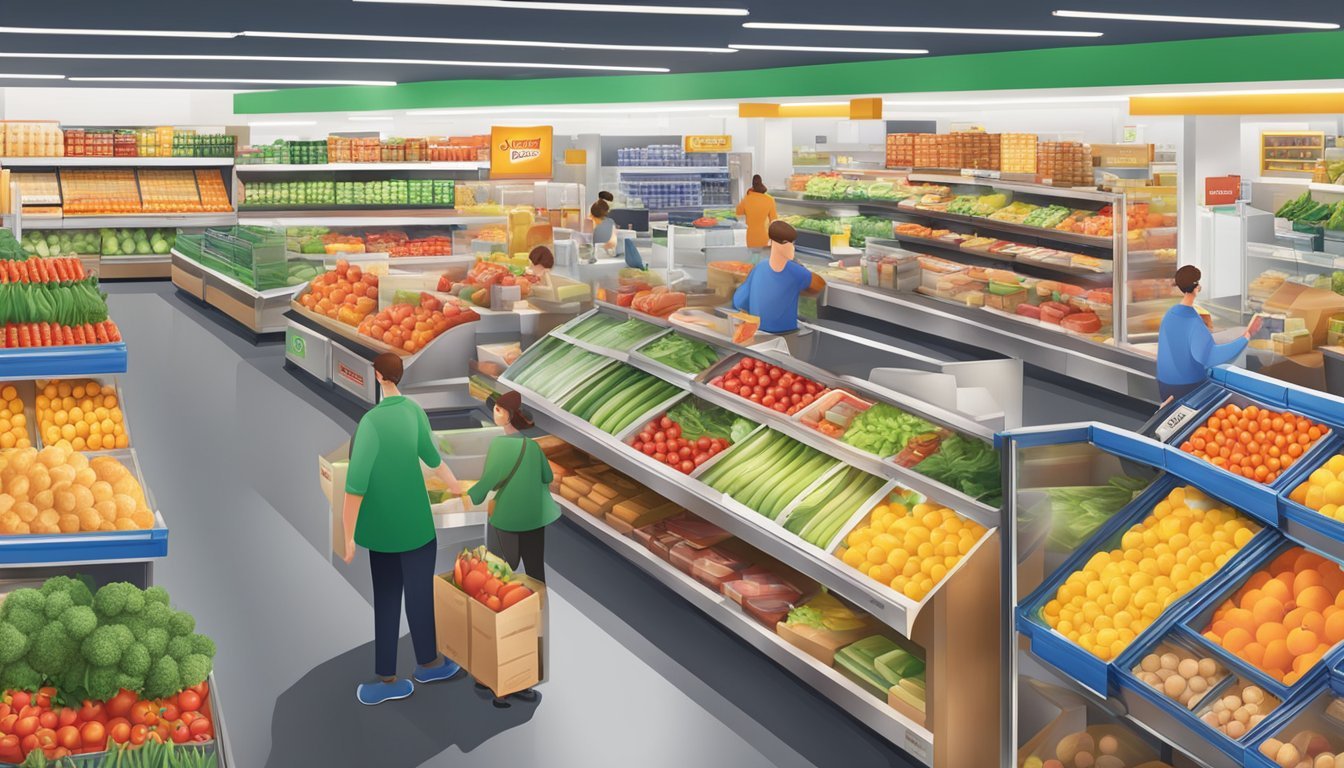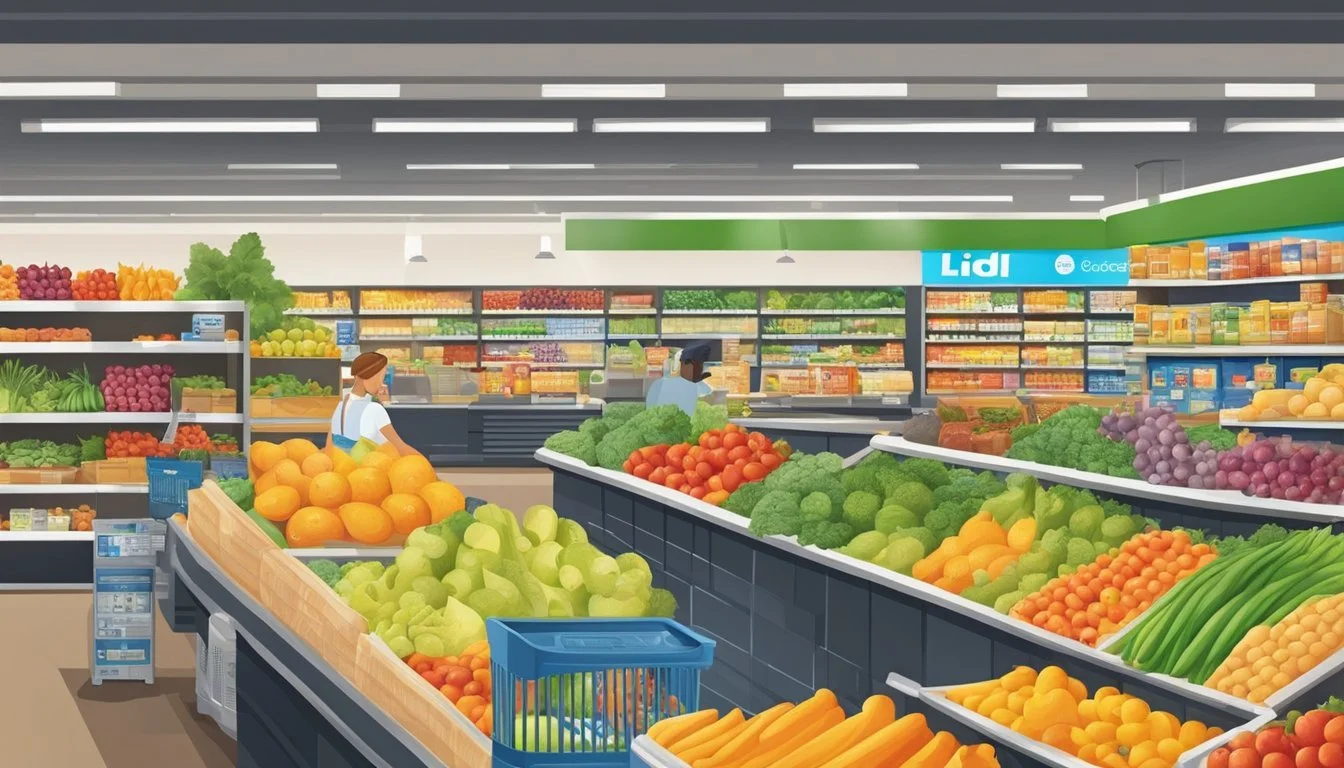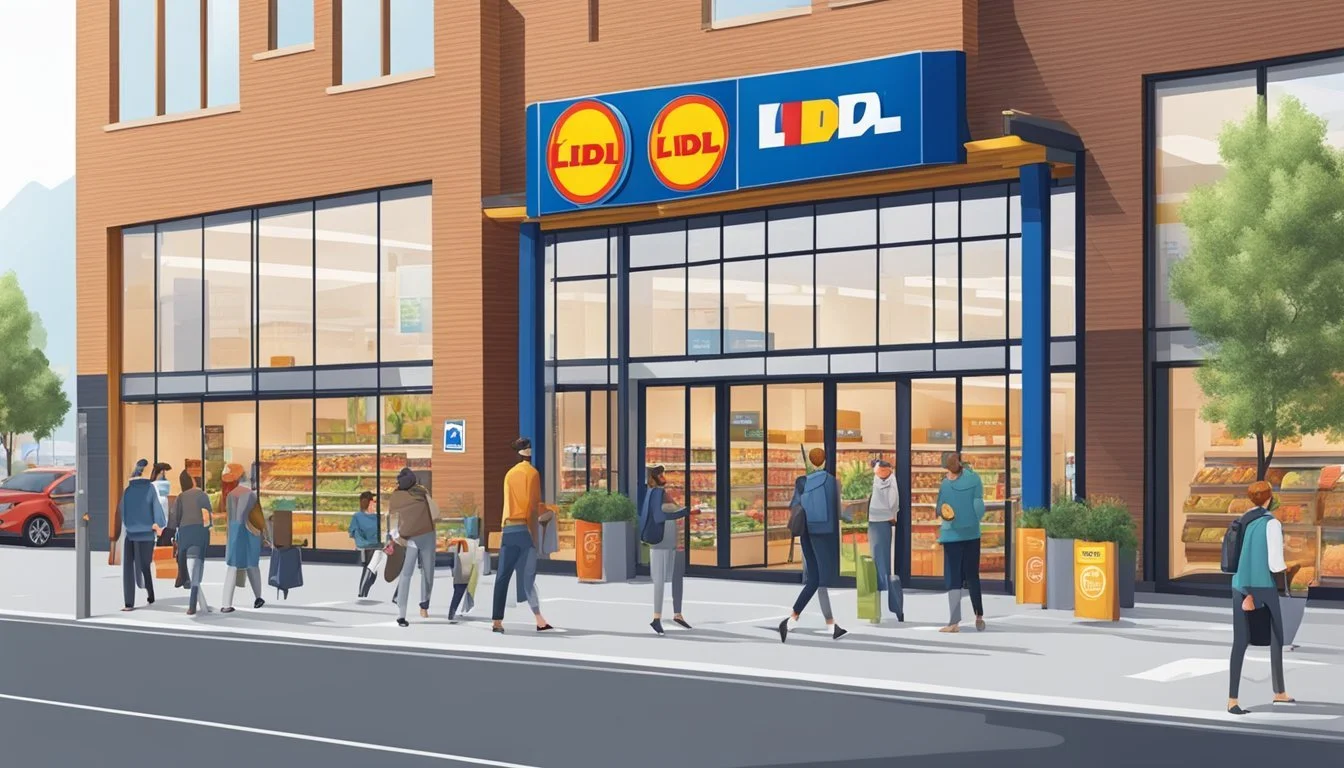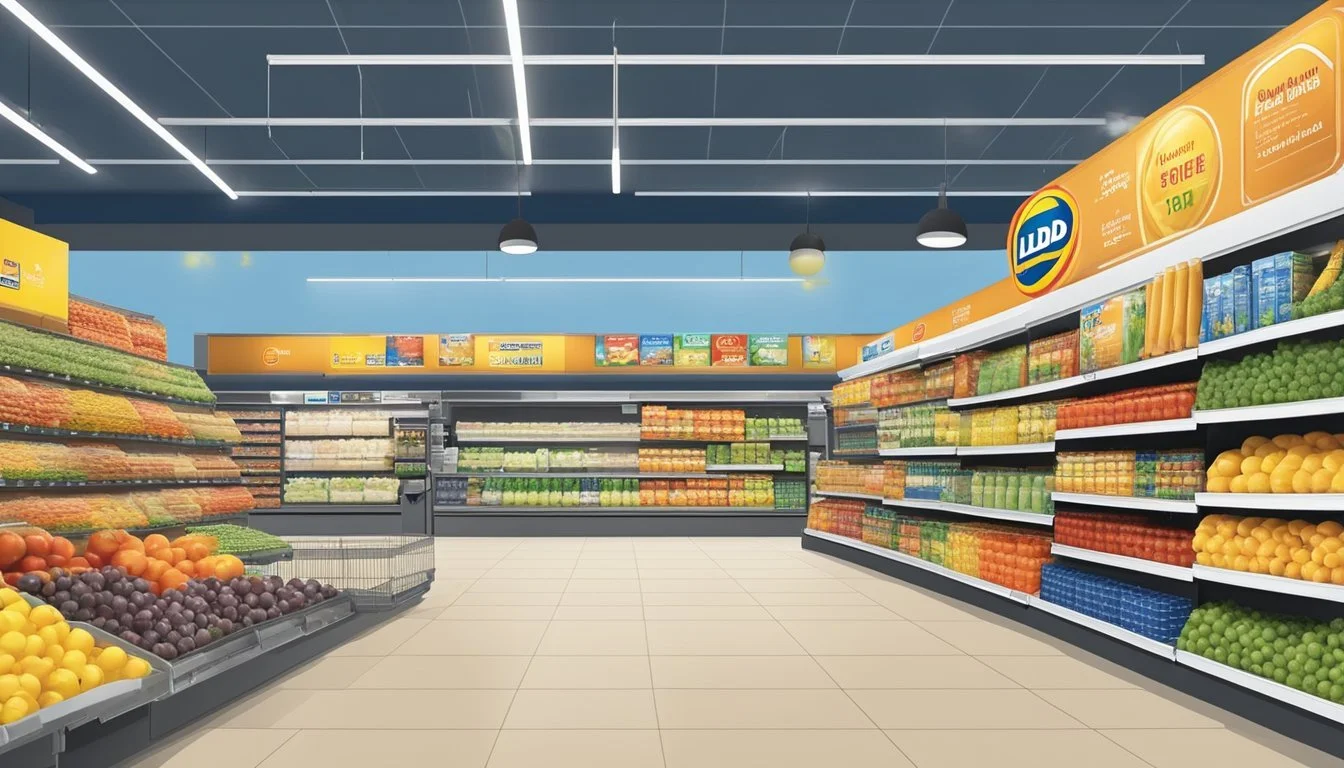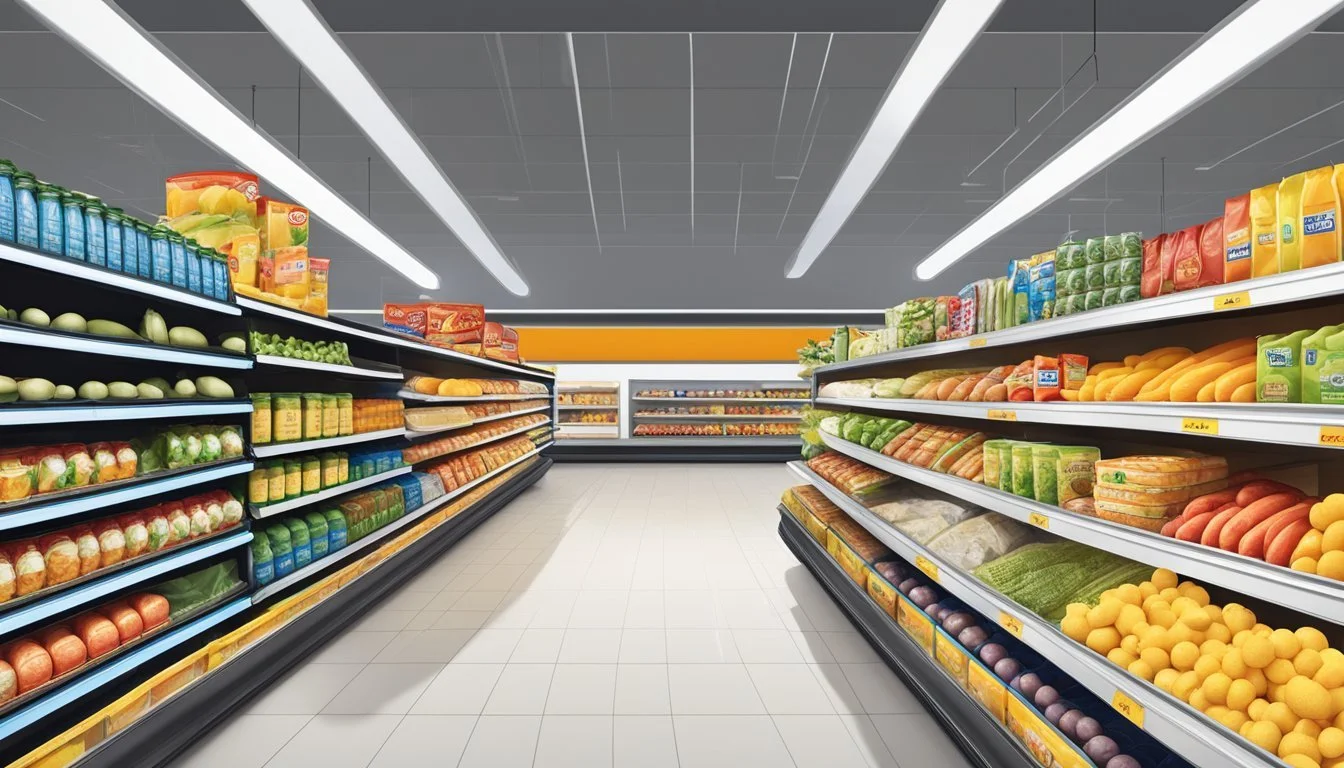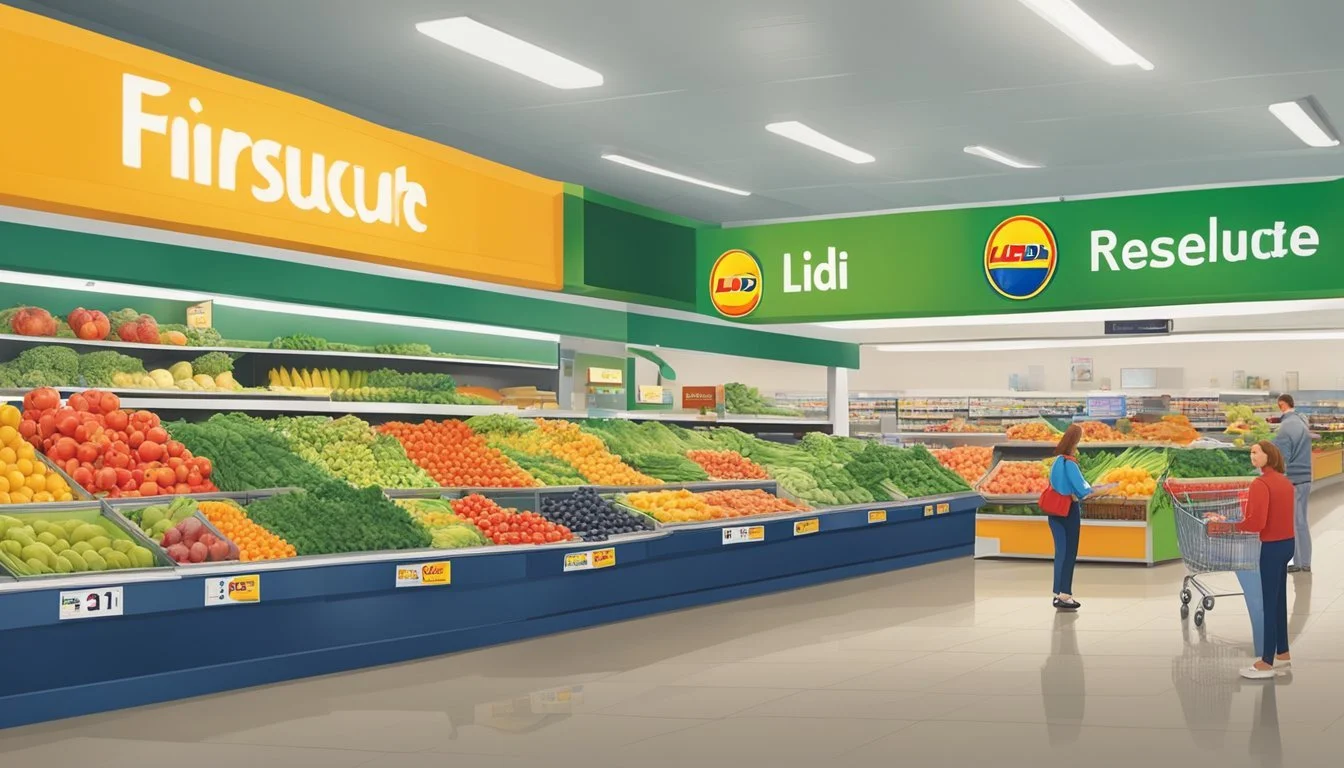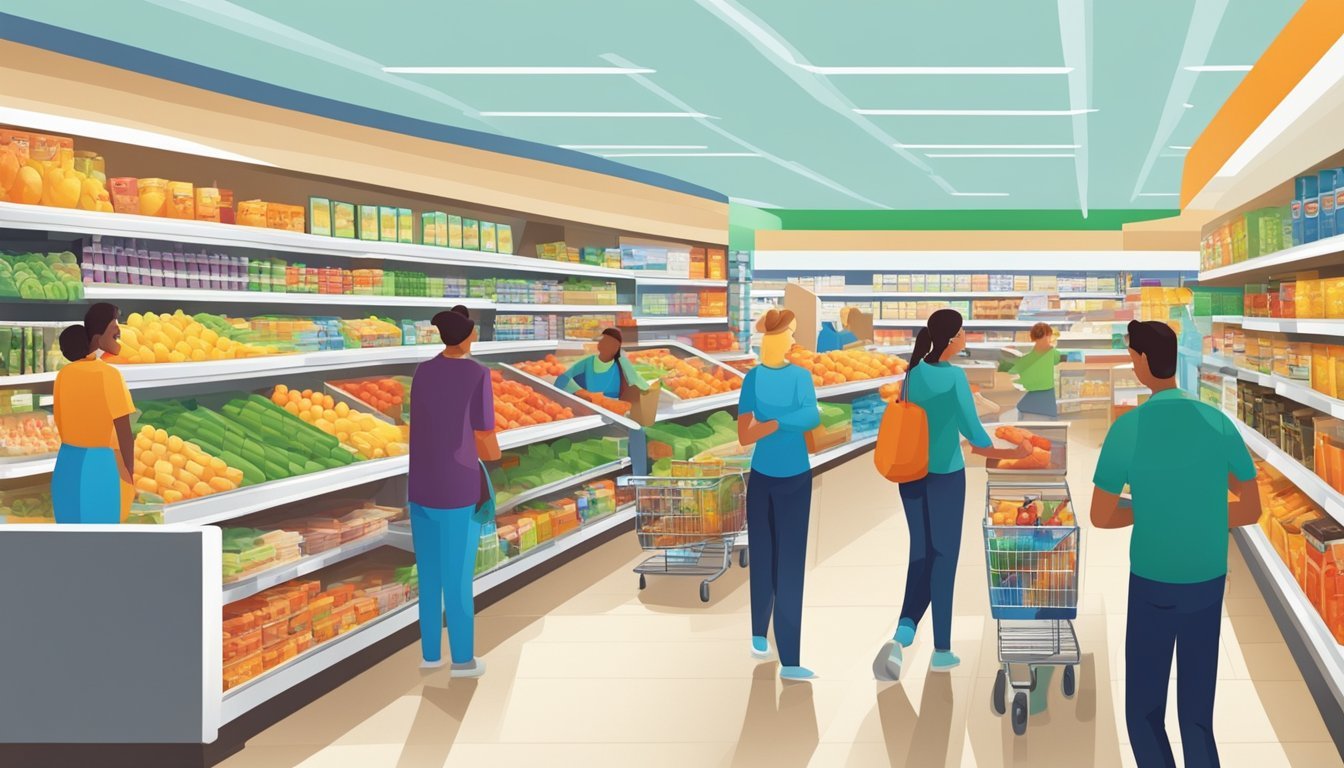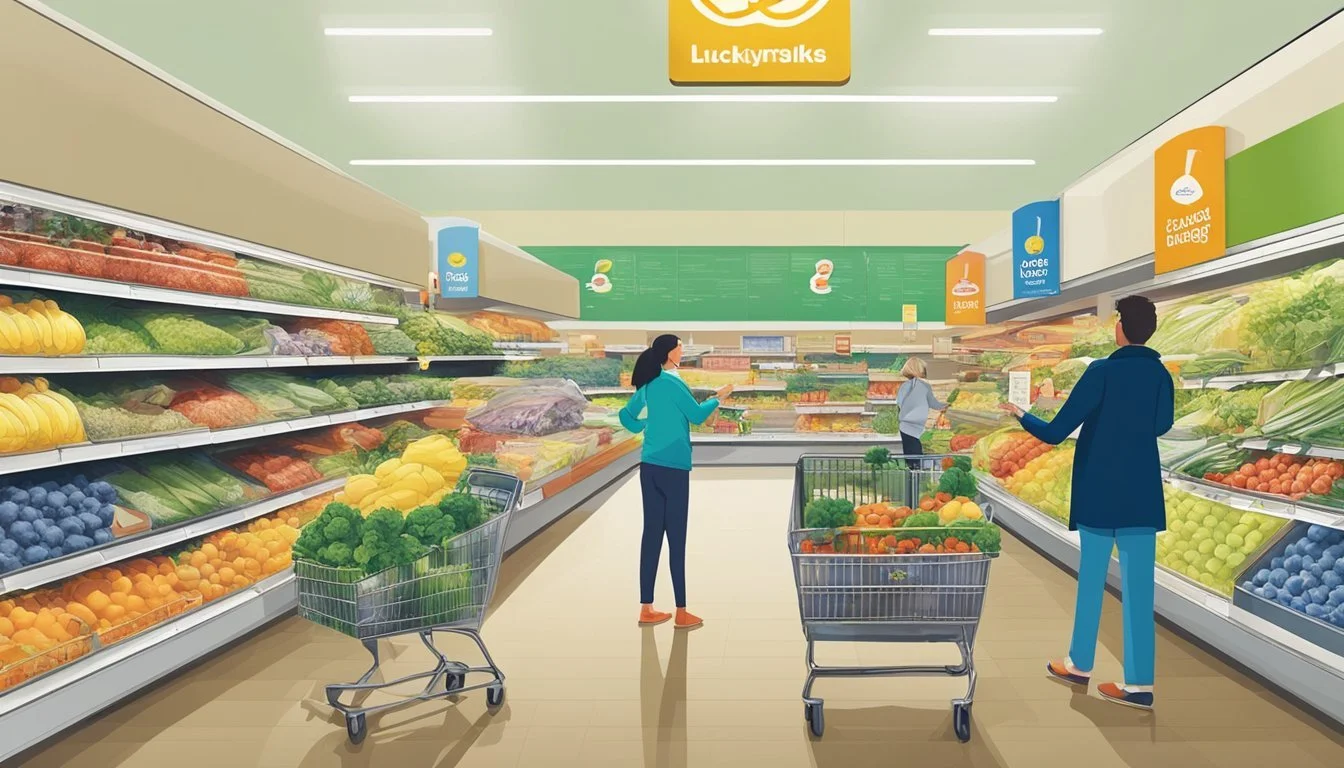Lidl vs Lucky Supermarkets
Comparing Prices, Selection, and Quality
Lidl and Lucky Supermarkets offer distinct grocery shopping experiences for consumers seeking quality products and competitive prices. Lidl, a German discount chain, has rapidly expanded its presence in the United States with a focus on efficiency and affordability. Lucky Supermarkets, a regional chain primarily found in Northern California, emphasizes fresh produce and local offerings.
Lidl stands out for its streamlined store layout and extensive selection of private-label products, which often match or exceed the quality of name brands at lower prices. Lucky Supermarkets, on the other hand, caters to a more diverse customer base with a wider range of ethnic foods and specialty items. Both stores aim to provide value, but their approaches differ significantly.
While Lidl's European-style shopping experience may appeal to budget-conscious consumers looking for no-frills simplicity, Lucky Supermarkets offers a more traditional American supermarket feel with a focus on customer service and community engagement. The choice between these two grocery chains ultimately depends on individual preferences for pricing, product selection, and shopping atmosphere.
History and Overview
Lidl and Lucky Supermarkets have distinct origins and trajectories in the grocery retail industry. Both companies have evolved over time to become significant players in their respective markets.
Origins of Lidl
Lidl's roots trace back to 1930s Germany. Josef Schwarz founded Schwarz Lebensmittel-Sortimentsgroßhandlung, a fruit wholesaler. His son Dieter later expanded the business.
In 1973, the first Lidl store opened in Ludwigshafen, Germany. The company focused on a discount model, offering a limited range of products at low prices.
Lidl's expansion began in the 1990s. The chain spread across Europe, opening stores in countries like France, the UK, and Spain. By the 2000s, Lidl had become one of Europe's largest grocery retailers.
In 2017, Lidl entered the US market. The company now operates over 11,000 stores worldwide.
Lucky Supermarkets' Background
Lucky Supermarkets originated in California in the 1930s. Charles Crouch founded the chain, opening the first store in San Leandro.
The company grew steadily in Northern California throughout the mid-20th century. Lucky became known for its focus on fresh produce and competitive pricing.
In 1998, American Stores Company acquired Lucky. The chain briefly operated under the Albertsons banner after a merger.
In 2006, Save Mart Supermarkets purchased the Northern California Lucky stores. The company reintroduced the Lucky brand name, maintaining its local focus and community-oriented approach.
Today, Lucky Supermarkets continues to serve communities across Northern California with a blend of traditional and modern grocery offerings.
Location and Accessibility
Lidl and Lucky Supermarkets have distinct geographical footprints, with Lidl focused on East Coast expansion while Lucky maintains a presence in Georgia. Their store locations impact accessibility for different shoppers.
Lidl's Expansion on the East Coast
Lidl has concentrated its U.S. growth along the East Coast. The German discount chain entered the American market in 2017, opening stores in Virginia, North Carolina, and South Carolina. Since then, Lidl has expanded northward into states like New Jersey, Pennsylvania, and New York.
Lidl now operates over 150 stores across the Eastern seaboard. The company continues to add new locations, focusing on populous areas and suburbs. This strategy allows Lidl to reach a growing customer base in densely populated regions.
Many Lidl stores are situated in convenient locations near major roads and shopping centers. The chain aims to make its stores easily accessible to both urban and suburban shoppers.
Lucky's Presence in Georgia
Lucky Supermarkets maintains a regional presence focused in Georgia. The chain operates stores primarily in the Atlanta metropolitan area and surrounding counties.
Lucky's Georgia locations serve both urban and suburban communities. Stores can be found in cities like Atlanta, Marietta, and Lawrenceville. The company has strategically placed its supermarkets in high-traffic areas and established neighborhoods.
Unlike Lidl's wide East Coast presence, Lucky's more concentrated footprint allows the chain to cater specifically to Georgia shoppers. This regional focus enables Lucky to tailor its offerings to local preferences and needs.
Lucky stores are often found in shopping plazas and standalone locations throughout Georgia communities. The chain strives to provide convenient access for customers in its service areas.
Store Layout and Shopping Experience
Lidl and Lucky Supermarkets offer distinct layouts and shopping experiences. Each store has its own approach to aisles organization, in-store ambience, and checkout processes that shape the overall customer journey.
Aisles Organization
Lidl employs a compact layout with wide aisles and strategically placed product sections. The store typically features a central aisle with rotating weekly specials, flanked by permanent grocery departments. Fresh produce is often positioned near the entrance, encouraging healthy choices.
Lucky Supermarkets generally follow a more traditional grocery store layout. Aisles are arranged in parallel rows, with clear signage indicating product categories. The perimeter houses fresh departments like bakery, deli, and produce, while center aisles contain shelf-stable goods.
Both stores prioritize efficiency, but Lidl's layout tends to be more condensed and focused on private-label offerings.
In-Store Ambience
Lidl stores have a bright, modern aesthetic with clean lines and minimalist decor. Large windows often allow natural light to fill the space. The ambience is functional and no-frills, reflecting the store's focus on value.
Lucky Supermarkets typically offer a warmer, more traditional grocery store atmosphere. Softer lighting, wider aisles, and more elaborate department signage create a familiar shopping environment.
Music choices differ between the two chains. Lidl often opts for a quieter shopping experience with minimal background music. Lucky Supermarkets frequently play popular music to create a lively atmosphere.
Checkout Process Convenience
Lidl emphasizes speed and efficiency at checkout. The stores feature multiple self-checkout stations alongside staffed registers. Cashiers are trained to scan items quickly, and customers are expected to bag their own groceries.
Lucky Supermarkets provide a mix of traditional checkout lanes and self-service options. Baggers are often available to assist customers, offering a more personalized touch.
Both stores implement queue management systems during busy periods. Lidl may open additional registers swiftly to handle increased customer flow, while Lucky Supermarkets sometimes use a single-line system to distribute customers evenly among open registers.
Product Range and Quality
Lidl and Lucky Supermarkets offer diverse product selections with varying quality levels. Both chains strive to meet customer needs through a mix of national brands and private-label offerings.
Private-Label Offerings
Lidl's private-label products form a significant portion of their inventory. These items often match or exceed the quality of national brands at lower prices. Lidl's exclusive brands cover various categories, from pantry staples to household goods.
Lucky Supermarkets also carries private-label products, though their selection is typically smaller than Lidl's. Lucky's store brands focus on essential grocery items and provide budget-friendly alternatives to name brands.
Quality can vary between the two chains' private-label offerings. Lidl often receives praise for the taste and value of its store-brand items. Lucky's private-label products are generally reliable but may not always match Lidl's reputation for quality.
Fresh Produce and Bakery
Lidl prioritizes fresh produce, offering a wide array of fruits and vegetables. Their produce section often features seasonal items and locally sourced options when available. Lidl's in-store bakeries are a highlight, providing freshly baked bread, pastries, and cakes throughout the day.
Lucky Supermarkets maintains a standard produce section with common fruits and vegetables. While the selection may be less extensive than Lidl's, Lucky strives to offer competitive prices on popular items.
Lucky's bakery departments vary by location. Some stores have full-service bakeries, while others offer a more limited selection of baked goods.
Meat and Seafood Selection
Lidl's meat department emphasizes quality and value. They offer a range of fresh cuts, including beef, pork, and poultry. Many Lidl stores feature a dedicated seafood section with both fresh and frozen options.
Lucky Supermarkets provides a standard selection of meats, including pre-packaged and butcher-cut options. Their seafood offerings may be more limited compared to Lidl, focusing on popular fish varieties and frozen products.
Both chains strive to maintain competitive pricing in their meat and seafood departments. Lidl often promotes special deals on premium cuts, while Lucky may offer regular discounts on family-sized packages.
Specialty Products and International Foods
Lidl regularly features themed weeks showcasing international cuisines. These promotions introduce customers to unique products from various countries. Lidl's specialty section often includes a rotating selection of gourmet cheeses, wines, and imported snacks.
Lucky Supermarkets typically cater to local demographics. Stores in diverse areas may offer a broader range of international foods. Lucky's specialty product selection can vary significantly by location, with some stores featuring dedicated ethnic food aisles.
Both chains recognize the growing demand for organic and health-focused products. Lidl and Lucky have expanded their offerings in these categories, though Lidl tends to have a more extensive selection of specialty diet items.
Pricing and Value for Money
Lidl and Lucky Supermarkets take different approaches to pricing and value. Lidl focuses on everyday low prices as a discount grocer, while Lucky Supermarkets offers competitive pricing and frequent promotions.
Everyday Low Prices and Discounts
Lidl positions itself as a discount grocer, emphasizing consistently low prices across its product range. The store keeps costs down through efficient operations and a limited selection of mainly private-label items.
Lucky Supermarkets, on the other hand, offers a mix of regular prices and weekly specials. Their loyalty program provides additional savings opportunities for members.
Both chains run periodic promotions, but Lidl tends to have fewer deep discounts, relying instead on its everyday low price strategy.
Premium Product Lines and Affordability
Lidl offers a selection of premium products at lower prices than traditional supermarkets. Their "Preferred Selection" line includes gourmet and specialty items at competitive rates.
Lucky Supermarkets carries a wider range of national brands alongside their store-brand products. They aim to provide options at various price points to cater to different customer preferences.
While Lucky may have more variety in premium offerings, Lidl's approach often results in lower prices for comparable quality items.
Cost-Efficiency Comparisons
A price comparison of common grocery items typically shows Lidl as the more affordable option. Their streamlined operations and focus on private labels contribute to lower overall prices.
Lucky Supermarkets may have higher regular prices but can be competitive when factoring in sales and loyalty program discounts.
For budget-conscious shoppers, Lidl generally offers better value for money on everyday essentials. However, Lucky's promotions and wider selection can provide savings opportunities for strategic shoppers.
Store Pricing Strategy Premium Options Overall Value Lidl Everyday low prices Limited, affordable High Lucky Regular prices with promotions Wide range Moderate
Customer Service and Satisfaction
Lidl and Lucky Supermarkets prioritize customer satisfaction through different approaches. Their employee training, store assistance, and return policies impact the overall shopping experience.
Employee Training and Store Assistance
Lidl invests heavily in employee training programs. Staff members receive comprehensive instruction on product knowledge and customer service techniques. This results in knowledgeable employees who can assist shoppers efficiently. Lidl stores typically have fewer staff on the floor, focusing on a lean operation model.
Lucky Supermarkets takes a more hands-on approach. Their employees are trained to be proactive in offering assistance. Customers often find staff readily available throughout the store to answer questions or provide help. Lucky emphasizes creating a friendly, neighborhood store atmosphere.
Return Policies and Customer Guarantees
Lidl offers a "Twice as Nice Guarantee" on its private label products. If a customer is unsatisfied, they receive a refund and a replacement item. This policy demonstrates Lidl's confidence in their house brands and commitment to customer satisfaction.
Lucky Supermarkets has a more traditional return policy. They accept returns on most items with a receipt within a specified timeframe. Lucky focuses on resolving customer issues on a case-by-case basis, allowing store managers some discretion in handling returns.
Both chains regularly conduct customer satisfaction surveys to gather feedback and improve their services. These surveys help identify areas for improvement and shape future customer service strategies.
Additional Services and Conveniences
Lidl and Lucky Supermarkets offer distinct services to enhance the shopping experience. Both stores provide unique features that cater to different customer preferences and needs.
In-Store Specials and Rotating Selections
Lidl is known for its "Lidl Surprises" section, which features weekly rotating merchandise. This area offers non-grocery items like clothing, household goods, and seasonal products at discounted prices.
Lucky Supermarkets focuses on grocery-specific promotions. They regularly offer in-store specials on food items, particularly fresh produce and meats.
Both stores use eye-catching displays to highlight their deals. Lidl's approach is more diverse, while Lucky's emphasizes grocery savings.
Online Shopping and Home Delivery
Lidl has expanded its digital presence, offering online shopping and home delivery in select markets. Customers can browse products, place orders, and schedule deliveries through the Lidl app or website.
Lucky Supermarkets also provides online shopping options. They partner with third-party services like Instacart to facilitate home delivery and curbside pickup in many locations.
Both stores have user-friendly interfaces for their online platforms. Lidl's system is directly integrated with their operations, while Lucky relies more on external partnerships for fulfillment.
Corporate Responsibility and Sustainability
Lidl and Lucky Supermarkets have taken steps to improve their environmental impact and community engagement. Both companies recognize the importance of sustainable practices and social responsibility in the grocery industry.
Environmental Footprints
Lidl has set ambitious goals to reduce its carbon emissions. The company aims to cut Scope 1 and Scope 2 greenhouse gas emissions by 70% compared to 2019 levels by 2030. This target demonstrates Lidl's commitment to mitigating climate change.
Lidl also focuses on conserving resources and respecting biodiversity. The company has initiatives to reduce waste and promote sustainable sourcing of products.
Lucky Supermarkets, as part of The Save Mart Companies, has implemented energy-efficient lighting and refrigeration systems in its stores. This helps lower electricity consumption and reduces the company's overall carbon footprint.
Both retailers have introduced reusable bag programs to decrease plastic waste. They encourage customers to bring their own bags or purchase reusable options at checkout.
Community Initiatives and Programs
Lidl engages in various community-focused programs. The company promotes health through its product offerings and educational initiatives. Lidl also emphasizes fair labor practices and aims to narrow its gender pay gap to under 5% by 2030.
Lucky Supermarkets supports local food banks and participates in hunger relief efforts. The company donates surplus food to community organizations, helping to reduce food waste while addressing food insecurity.
Both retailers prioritize sourcing products from local suppliers when possible. This practice supports regional economies and reduces transportation-related emissions.
Lidl and Lucky Supermarkets offer employee volunteer programs, allowing staff to contribute to local causes. These initiatives foster community connections and demonstrate corporate social responsibility.
Comparative Advantages
Lidl and Lucky Supermarkets each bring unique strengths to the grocery retail landscape. These distinct advantages shape their customer experiences and market positions.
Lidl's Innovations in Grocery Retail
Lidl has made significant strides in revolutionizing the grocery shopping experience. The company's store layouts prioritize efficiency, with a streamlined selection that reduces decision fatigue for customers.
Lidl's private label products often match or exceed the quality of national brands at lower price points. This approach allows shoppers to save money without compromising on taste or quality.
The retailer's "Lidl Surprises" section introduces new, limited-time products weekly. This strategy keeps the shopping experience fresh and exciting for customers, encouraging repeat visits.
Lidl's commitment to sustainability is evident in its packaging reduction initiatives and energy-efficient store designs. These efforts appeal to environmentally conscious consumers.
Lucky Supermarkets' Commitment to Customers
Lucky Supermarkets focuses on building strong community ties. The chain often tailors its product selection to local preferences, ensuring a more personalized shopping experience.
The company's loyalty program offers substantial savings and personalized deals. This approach fosters customer retention and rewards frequent shoppers.
Lucky Supermarkets maintains a wider variety of national brands compared to Lidl. This preferred selection caters to customers who have specific brand loyalties or dietary requirements.
The chain's emphasis on fresh produce and local sourcing supports regional farmers and provides customers with high-quality, seasonal options. This commitment to freshness is a key differentiator for Lucky Supermarkets.

